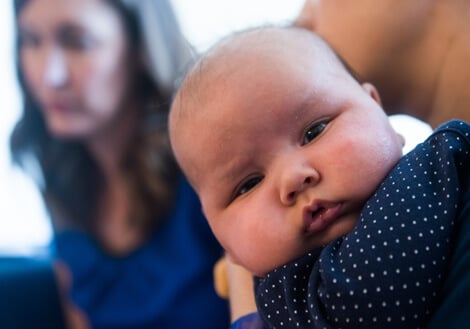Experimental Therapeutics in Pediatric Cancer

Experimental Therapeutics in Pediatric Cancer

The Experimental Therapeutics in Pediatric Cancer program makes clinical trials available to your child when traditional cancer therapies have not been successful.
We are the only pediatric hospital in the region that provides access to cancer clinical trials, which means your child can benefit from the latest innovations in research while staying close to home. This is important because family connection and familiarity with surroundings has been shown to improve the success of cancer treatment.
What is experimental therapeutics?
Our trials test treatment methods that have not yet been used for your child’s diagnosis. Many medications involved in clinical trials have been proven effective and safe for other cancers or for use in adult patients, but not specifically for pediatric cancer. Experimental Therapeutics is the science of taking those treatments and trialing them with different cancers to test their effectiveness.
What are the phases of a cancer research trial?
-
Phase 1: A test of a drug to determine its safety and proper dosage for pediatric patients. At this phase, we do not know yet if a drug is effective.
-
Phase 2: This phase comes after a drug’s safety has been proven and tests the drug’s effectiveness.
-
Phase 3: This phase ensures a drug meets our standard of care. Phase 3 is designed to verify if a drug can improve on how we currently treat a diagnosis.
Financial assistance to help fund your trial participation
If your child qualifies for a clinical trial in our program, we provide guidance in finding financial resources to help cover the cost of the trial. In addition to working with Missouri and Kansas Medicaid programs, we also assist with access to Medicaid programs in other states. Many parts of the clinical trial’s process, such as labs, X-rays, and other essentials tests, are covered by your health insurance.
The research team
The Experimental Therapeutics Research Team works to provide the best in cancer research expertise while providing the emotional support your family needs. Our team includes four doctors, one nurse practitioner, four research coordinators, and one social worker.
Investigational Drug Service (IDS) Pharmacy
The Children’s Mercy IDS Pharmacy is a full service pharmacy providing clinical knowledge and operational support for all studies involving investigational drugs at Children’s Mercy. As part of the Experimental Therapeutics Team, the IDS Pharmacy staff provides protocol and sponsor directed security, accountability, education, and dispensing of all Investigational as well as ancillary medications.
The Children's Mercy Research Institute
The Children’s Mercy Research Institute at Children's Mercy is creating an integrated research environment where no boundaries exist between science and medicine. In our quest to find answers to pediatric medicine’s most challenging questions, we are collaborating with physicians, scientists, academic colleagues, philanthropic partners and others within our community, and around the world.
- Cancer Center
- Cancer in Adolescents and Young Adults
- Brain Tumor Treatment
- Experimental Therapeutics
- Genomic Medicine in Cancer Treatment
- Histiocytosis Program
- Leukemia and Lymphoma Program
- Li Fraumeni Syndrome
- Liver Cancer Treatment
- Proton Therapy
- Soft Tissue and Bone Sarcomas
- Spanish-Speaking Cancer Clinic
- Surveillance for Predisposition to Tumors (SPoT) Clinic
- Survive & Thrive
- Cancer Center Family Care Team
- Hematology, Oncology, and Blood and Marrow Transplant
- Meet the Team